Insights into Vital Millennial Skills

While the importance of your GPA and having a degree from a brand name school mattered to companies like Google less than 8-10 years ago, an important indicator for hiring managers now will be a candidate’s general cognitive ability. In line with this trend, millennials are exploring alternative Higher Ed options outside of traditional institutions including programs at General Assembly or coding bootcamps at Dev Bootcamp.
GSV Media recently released a Wealth of Nations 2.0 report with data on the top 10 countries by Millennials skills and the U.S. was listed as ranking low at 19. The report states that the Department of Labor estimates by 2020 that computer science jobs will grow to 1.4 million and projected to pay 75% more than the national median salary, yet 90% of secondary schools fail to offer any computer science program.
The snapshot of the report below will give insights into Millennial Skills but be sure to read the full Wealth of Nations 2.0 report for more on A Round to Apple. Below is partial repost of a a GSV blast.
America’s skills gap becomes clear upstream. Over 366,000 high school students are enrolled in AP U.S. History, compared to 22,000 in AP Computer Science, despite 150,000 computer science job openings and zero for U.S. History.
By 2020, the Department of Labor projects total computer science and specialist job openings will grow to 1.4 million. While these jobs are projected to pay 75% more than the national median salary, 90% of secondary schools fail to offer any computer science program at all. And at their current pace, U.S. universities are expected to produce enough qualified graduates to fill only 29% of the openings. We are stuck teaching History when we need to teach “Future”. It is time to rethink the model.
21st Century Skills After analyzing years of data surrounding who succeeded at the company and who didn’t, Google has almost completely de-emphasized GPAs, brand name schools, and interview brain teasers as part of their hiring process. Why? Because succeeding in academia is not a reliable indicator that someone will succeed in the innovation economy. As Google’s SVP of People Operations, Laszlo Bock, recently observed, “For every job… the No. 1 thing we look for is general cognitive ability, and it’s not IQ. It’s learning ability… It’s the ability to pull together disparate bits of information. We assess that using structured behavioral interviews that we validate to make sure they’re predictive.” In other words, you need a baseline skill set that enables you to function in a call center one day and interpret MRI scans the next. College is an “artificial environment” that conditions people for one type of thinking. IQ is less valuable than learning on the fly.
Innovative, non-degree education providers like General Assembly have jumped into the void, providing opportunities to quickly learn 21st Century skills from engaging experts and practitioners in a variety of onsite and virtual formats. (Disclosure: GSV owns shares in General Assembly).
Since Dev Bootcamp opened their doors in 2012, the technology “bootcamp” industry has grown throughout the U.S. and around the world. Bootcamps are intensive, accelerated learning programs that teach digital skills like Full-Stack Web Development, Data Science, Digital Marketing, and UX/UI Design. The average cost of bootcamp programs is $11,000, with an average program length of 11 weeks. In 2015, the bootcamp market is projected to grow by 2.5x, to an estimated 16,056 graduates in 2015, up from 6,740 in 2014. It will be a nearly $200 million industry by the end of the year.
Coding Bootcamps have caught the attention of policymakers, including the White House Office of the CTO, which launched the TechHire initiative in March 2015. In conjunction with TechHire, a group of top bootcamps announced the New Economy Skills Training Association (NESTA) to establish best practices, standards, and increase accountability for outcome-based NEST organizations.
GSVlabs, the Silicon Valley innovation center, is contributing to this growing trend with the recently-launched Silicon Valley Data Academy (SVDA), an eight-week immersive training program to become an enterprise class data scientist or engineer. SVDA was launched in partnership with Silicon Valley Data Science, an elite consulting firm led by technology thought leaders Sanjay Mathur and John Akred. GSVlabs also recently rolled out ReBoot, an accelerator that empowers women to restart their careers through immersive technology education and professional networking. (Disclosure: GSV owns shares in GSVlabs and Silicon Valley Data Science) Beyond bootcamps, Fullbridge effectively serves as a 21st Century finishing school for college and advanced degree program graduates who have invested in a diploma but still lack the skills to get a job and contribute productively from day one. Partnering with education institutions and employers, Fullbridge closes the workplace skills gap with immersive learning programs emphasizing essential business skills, communication, and collaboration. (Disclosure: GSV owns shares in Fullbridge)
About “GenDIY”
Young people are taking control of their own pathway to careers, college and contribution. Powered by digital learning, “GenDIY” is combatting unemployment and the rising costs of earning a degree by seeking alternative pathways to find or create jobs they love. Follow their stories here and on Twitter at #GenDIY. For more on GenDIY, check out:
For more check out:



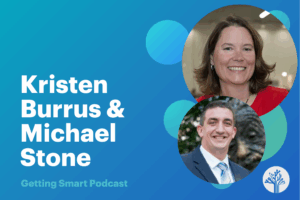
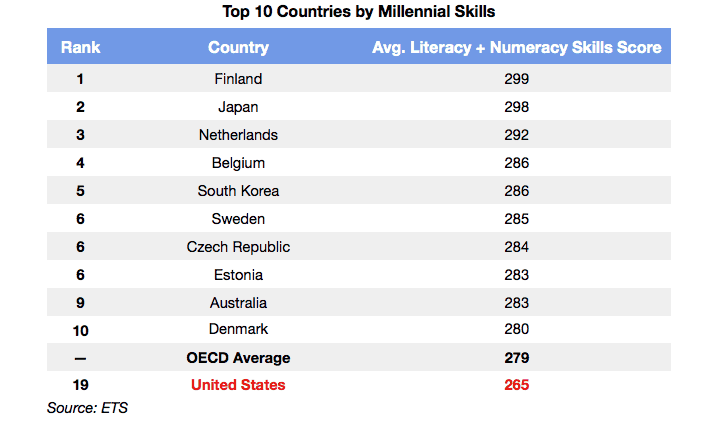
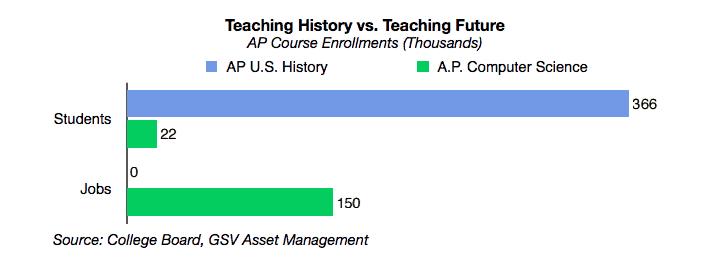

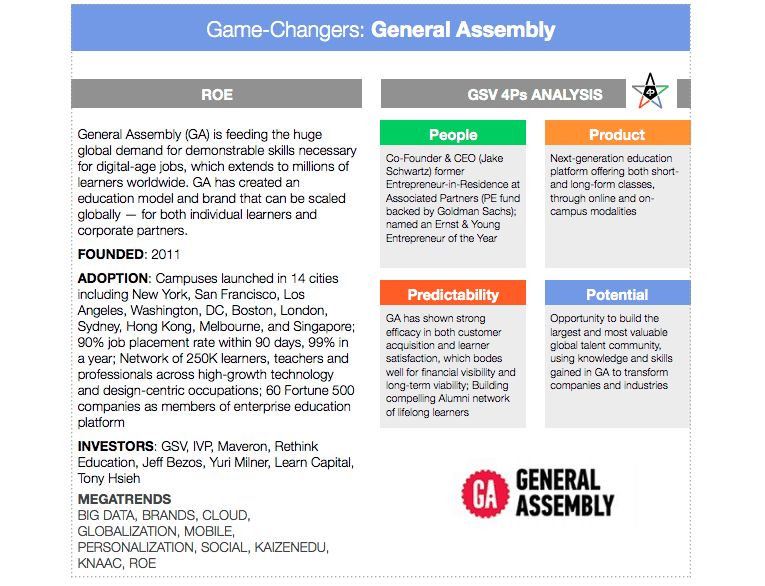
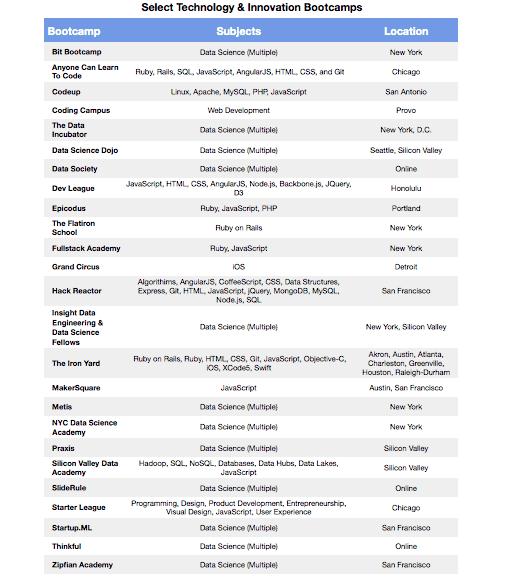

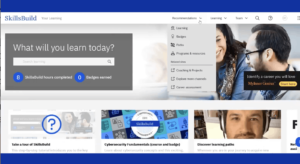

0 Comments
Leave a Comment
Your email address will not be published. All fields are required.